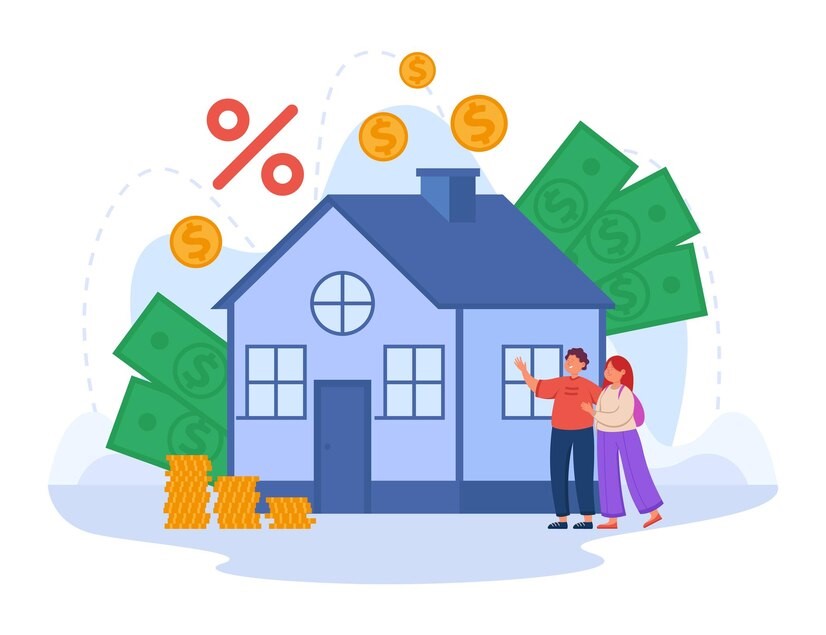Table of Contents
ToggleIntroduction
Thinking of buying a home? Choosing the right mortgage is key. It can save you money. First, decide between fixed-rate and adjustable-rate mortgages.
A fixed-rate mortgage offers stability but is usually pricier upfront. Meanwhile, an ARM has lower initial costs but could rise later. Thus, making careful choices is vital. Your decision will impact your finances for years.
Think about the time you are planning to be staying in it, your comfort levels with the given investment, and the market trends as well.
Fixed rates create the most secure finances, on the other hand, ARMs might provide a solution in the short term. Make sure your mortgage aligns with your plans and way of living. A bad choice of mortgage would grind your dream of having a house to a halt.
This article will elaborate on Fixed-Rate and Adjustable-Rate Mortgages and will cover benefits as well as drawbacks of these mortgages. Besides this, it will state some tips through which one can decide the right mortgage for them.
Fixed-rate mortgage: What is it?
A fixed-rate mortgage has a steady interest rate. It stays the same for the mortgage period. This means your monthly payments stay the same, making it easier to budget. They lock in the rate at the start. It won’t change, no matter the market fluctuations.
Benefits of Fixed-rate Mortgage
Predictability
Your monthly payment remains constant. This gives clarity about budgeting and brings stability to your finances.
Stability
A fixed rate safeguards against sudden interest hikes, offering financial stability.
Long-Term Planning
Homeowners appreciate fixed payments over the years. It’s a financial shield against unpredictable changes.
Potential Drawbacks of Fixed-rate Mortgage
Higher Initial Rate
Although ARM rates start low, fixed-rate mortgages usually must have higher upfront interest. This premium buys long-term stability. It shields borrowers from market fluctuations that could inflate ARM payments over time.
Less Flexibility
If interest rates fall to a considerable degree, you must refinance to access them. This process involves extra costs and paperwork.
Adjustable-rate Mortgage: What is it?
An adjustable-rate mortgage (ARM) has an interest rate that changes. It’s linked to an index. At the beginning, the rate is often lower than a fixed-rate mortgage. But, it can increase or decrease after a set period.
Benefits of Adjustable-rate Mortgage
Lower Initial Rate
ARMs are cheaper than fixed-rate mortgages at first. They save money in the early stages. Their lower starting rates can trim costs in the first few years of homeownership.
Potential Savings
If interest rates stay the same or fall, you could pay less over the loan’s life.
Short-Term Solution
An ARM can save you money. But, it only works if you sell your home or refinance before the fixed period ends.
Potential Drawbacks of Adjustable-rate Mortgage
Uncertainty
After the initial fixed period, your rate can increase. This may lead to much higher monthly payments.
Complexity
Understanding how rate adjustments work and what caps apply can be challenging.
Market Dependency
Your future payments rely on unpredictable market interest rates.
Comparing Mortgages: Fixed vs. Adjustable Rates
Let’s find out which option is better for you.
Security vs. Freedom
Do you prefer consistent payments? Then choose a fixed-rate mortgage.
Are you open to uncertainty for potential savings? Then consider an ARM.
How Long Will You Stay?
Are you planning to stay over 10 years? Then a fixed-rate mortgage offers the best predictability.
If you are moving soon then, an ARM’s lower initial rate could save you money.
Interest Rate Trend
Rates rising? A fixed-rate mortgage protects you from hikes
Rates steady or falling? An ARM could offer lower rates.
Your Finances
Do you have a stable income? Then a fixed-rate mortgage is ideal.
Comfortable with increasing rates? then an ARM might work.
Important Questions to Consider
Before deciding, ask yourself these questions:
How long will I stay?
Long-term? A fixed-rate mortgage is safer.
Short-term? An ARM could save you money.
What’s my risk tolerance?
Worried about higher payments? Go for a fixed-rate mortgage.
Okay with some risk? An ARM might be better.
Can I afford higher payments if rates rise?
With an ARM, plan for the worst-case scenario.
What’s the market like now?
Ask your lender about current rates and forecasts to decide better.
Tips for Making the Right Choice
The choice between a fixed-rate mortgage and an ARM is critical. It requires considerable study.
Here are some tips:
Research
Learn the pros and cons of each mortgage. Fixed-rate mortgages have stable payments. ARMs start with lower rates but can increase. Discuss with your lender to find what matches your financial goals.
Use Calculators
Online calculators help compare costs. Check how interest rate changes affect payments. This shows long-term affordability.
Check ARM Details
If considering an ARM, note: how often rates change, the limits on increases, and the reference index.
Consult an Expert
A mortgage advisor gives custom advice. It is tailored to your finances, goals, and the market. With their guidance, you can make an informed decision.
For example, Munshi Capital gives top mortgage advice to help you pick the right loan. Their skilled team reviews your finances and offers practical suggestions.
Review Closing Costs and Fees
Both fixed and adjustable-rate mortgages have closing costs. Understand and compare these costs for both options. A lower rate isn’t always better if the fees are much higher.
Explore Future Scenarios
Create “what-if” scenarios to see how different conditions affect your finances. Consider rising interest rates or changes in income. This helps you find the mortgage type that best fits your situation.
Include Extra Costs
When budgeting, include property taxes, insurance, and maintenance. These affect your ability to manage the changing payments of an ARM.
Check Prepayment Options
Some mortgages allow early payments without penalties. If you expect extra funds, see if your mortgage allows this. It could save you interest.
Conclusion
When choosing between a fixed or adjustable mortgage, consider several factors. Fixed rates offer security. Adjustable rates provide flexibility. Consider your goals, risk tolerance, and how long you’ll stay. Weigh the pros and cons.
The best mortgage matches your lifestyle and finances. Whether you’re deciding between a fixed-rate mortgage or an ARM, Munshi Capital ensures that your choice fits your needs and secures your financial future. Happy home hunting!





